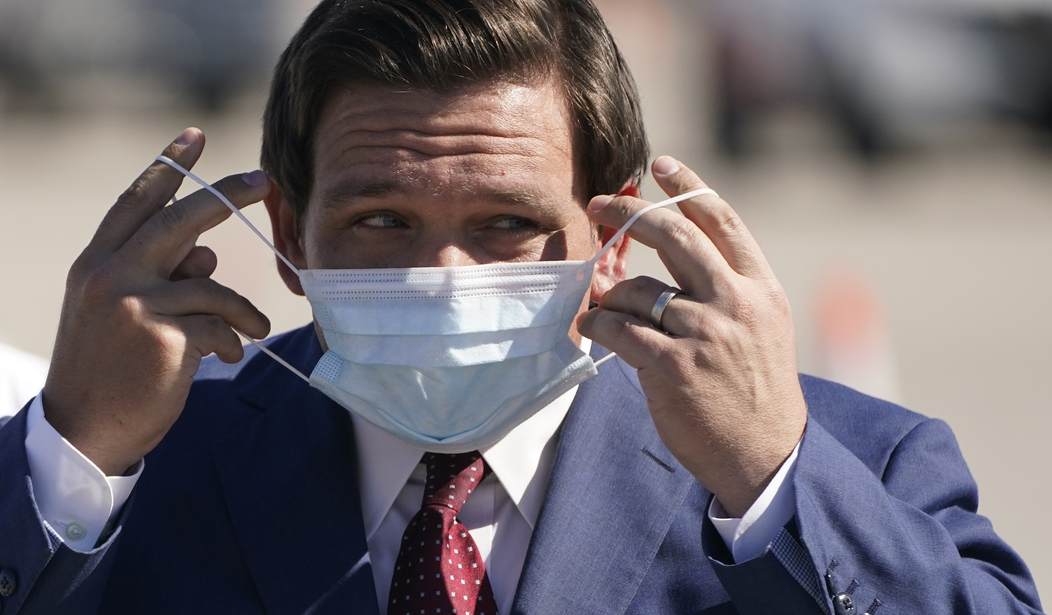I didn’t think the parties could find a little common ground on a COVID culture-war flashpoint like passports. But life brings us new surprises every day.
As you’ll see, though, it really is only “a little” common ground. In most potential passport scenarios, lefties and righties are poles apart as usual.
The interesting question here is: Which criteria are people using to decide whether passports are appropriate or not in each of the circumstances listed? Notice how the trends are consistent across each question among all three partisan groups even though the numbers in each group are very different. For Democrats and Republicans alike, there’s something about requiring vaccine passports from international travelers that’s much more palatable than requiring them in order to enter shops.

A few general principles probably explain most of the findings there:
1. Americans will tolerate the government placing more restrictions on foreigners than on themselves. If you want to visit the U.S., prove that you won’t put us at risk by being here. Even so, Republicans narrowly oppose requiring vaccine passports from international travelers, 41/48. That’s incredibly foolish given the risk of new variants that might arise abroad, not to mention those that have already emerged.
2. Americans like to give business owners lots of leeway in how they run their shops. If your boss wants you to get vaxxed in the name of making the workplace safer, most are okay with that.
3. Americans understandably think precautions like vaccine passports are more justified for special events that involve large gatherings like sports than they are for smaller gatherings. Although … I’m not sure how valid that assumption is. Are you really more at risk in an open-air stadium than you are in a bar? By what logic?
4. Americans don’t want to be hassled by having to produce passports in order to enjoy everyday pleasures like movie theaters, bars, restaurants, and shopping — even though those are probably higher-risk than venues like stadiums and airplanes where they’re more willing to see passports required.
The big outlier is shops, as that’s where Democrats finally join Republicans and independents in opposition to requiring passports for access. I wonder why that is. One possibility is that the sort of “shop” they’re thinking of is a supermarket; like I said yesterday, no one wants to see someone shut out of grocery-shopping just because they’re unvaccinated. The amount of time spent on the premises may be a component in people’s thinking too, though. Dems may be more willing to require passports in restaurants and bars because patrons are apt to spend an hour or more inside, heightening the risk of infection. Most people don’t spend that long in “shops,” though. Sometimes you duck in, get what you need, and duck out. Even pro-passport people may feel that it’s too burdensome to require evidence of vaccination for a brief visit like that.
Anyway, some U.S. businesses will doubtless insist on passports, at least in the near term while herd immunity is still months away. Will we have a uniform standard for those passports or will it be a logistical sh*tshow? You know the answer:
“I think it’s going to be a tidal wave that’s going to be very difficult to stop, because there’s enormous economic and social incentive for proof of vaccinations,” said Lawrence Gostin, a professor at Georgetown University.
Although he agrees with the approach of letting states and the private sector lead, Gostin thinks the federal government should have a larger advisory role.
“Unless they provide national scientific guidance and technical assistance, we’re going to see a patchwork of variable quality across the country,” he said. “And we’ve seen that movie before…you get a mess.”
Exit question: Does Ron DeSantis have the authority to ban all private businesses in Florida from requiring vaccine passports? Certainly he has the authority to ban state agencies from requiring them. But private entities?








